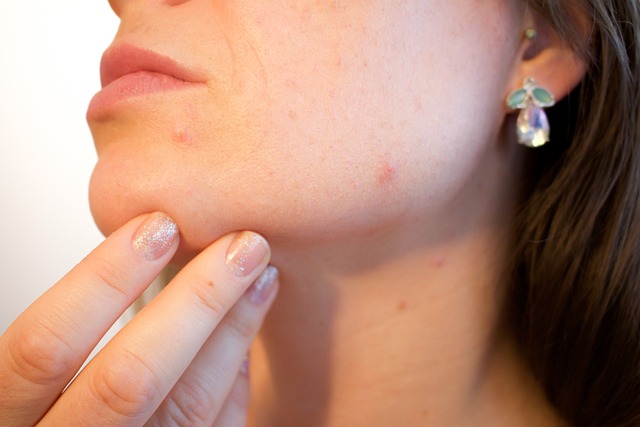“Don’t let hormone imbalance take control – recognize the warning signs today!”
hormone imbalance can be a difficult condition to diagnose and treat. It can cause a wide range of symptoms, from fatigue and weight gain to mood swings and depression. Recognizing the warning signs of hormone imbalance is the first step in getting the help you need. In this article, we will discuss the common signs and symptoms of hormone imbalance, as well as the steps you can take to get the help you need.
If you think you may be experiencing the warning signs of hormone imbalance, don’t wait to get help. Take action now and learn more about the symptoms and treatments available. Click here to read more about recognizing the warning signs of hormone imbalance.
How to Identify the Most Common Symptoms of Hormone Imbalance
hormone imbalance can be a difficult condition to identify and diagnose, but it is important to be aware of the most common symptoms so that you can take steps to address the issue. Here are some of the most common signs of hormone imbalance:
1. Fatigue: Feeling tired and exhausted all the time can be a sign of hormone imbalance. If you are having difficulty getting out of bed in the morning or feeling exhausted throughout the day, it could be a sign that your hormones are out of balance.
2. Mood swings: If you find yourself feeling irritable, anxious, or depressed for no apparent reason, it could be a sign of hormone imbalance.
3. Weight gain: Unexplained weight gain can be a sign of hormone imbalance. If you are eating a healthy diet and exercising regularly but still gaining weight, it could be a sign that your hormones are out of balance.
4. Sleep disturbances: Difficulty falling asleep or staying asleep can be a sign of hormone imbalance. If you are having trouble sleeping, it could be a sign that your hormones are out of balance.
5. Low libido: Low libido can be a sign of hormone imbalance. If you are not interested in sex or find it difficult to become aroused, it could be a sign that your hormones are out of balance.
If you are experiencing any of these symptoms, it is important to talk to your doctor. They can help you identify the cause of your symptoms and provide you with the treatment you need to get your hormones back in balance. With the right treatment, you can get back to feeling like yourself again.
What to Look for When Trying to Recognize the Warning Signs of Hormone Imbalance
When it comes to recognizing the warning signs of hormone imbalance, it is important to be aware of the subtle changes in your body. hormone imbalances can have a significant impact on your overall health and wellbeing, so it is important to be aware of the warning signs and take action to address them.
The most common warning signs of hormone imbalance include fatigue, weight gain, mood swings, depression, anxiety, insomnia, and changes in libido. If you are experiencing any of these symptoms, it is important to speak to your doctor to determine if a hormone imbalance is the cause.
Other warning signs of hormone imbalance include changes in skin texture, hair loss, irregular menstrual cycles, and hot flashes. If you are experiencing any of these symptoms, it is important to speak to your doctor to determine if a hormone imbalance is the cause.
It is also important to be aware of the warning signs of hormone imbalance in men. These include decreased libido, erectile dysfunction, fatigue, and depression. If you are experiencing any of these symptoms, it is important to speak to your doctor to determine if a hormone imbalance is the cause.
Finally, it is important to be aware of the warning signs of hormone imbalance in children. These include delayed puberty, early puberty, and changes in behavior. If you are concerned about any of these symptoms, it is important to speak to your doctor to determine if a hormone imbalance is the cause.
By being aware of the warning signs of hormone imbalance, you can take action to address the issue and ensure that your health and wellbeing are not compromised. If you are experiencing any of the symptoms mentioned above, it is important to speak to your doctor to determine if a hormone imbalance is the cause. With the right treatment and lifestyle changes, you can restore balance to your hormones and enjoy a healthier, happier life.
How to Interpret the Signs of Hormone Imbalance in Men and Women

hormone imbalance can have a significant impact on both men and women, leading to a variety of physical and emotional symptoms. It is important to understand the signs of hormone imbalance in order to take steps to address the issue and restore balance.
For women, some of the most common signs of hormone imbalance include irregular menstrual cycles, hot flashes, night sweats, mood swings, and difficulty sleeping. Other signs may include weight gain, fatigue, low libido, and depression.
For men, some of the most common signs of hormone imbalance include low libido, erectile dysfunction, fatigue, depression, and difficulty sleeping. Other signs may include weight gain, muscle loss, and decreased energy.
It is important to note that these signs can be caused by a variety of factors, and it is important to consult with a doctor to determine the cause of the symptoms. If hormone imbalance is the cause, there are a variety of treatments available to help restore balance.
hormone imbalance can be a difficult issue to address, but it is important to remember that it is possible to restore balance and improve your overall health and wellbeing. With the right treatment and lifestyle changes, you can find relief from the symptoms of hormone imbalance and enjoy a healthier, happier life.
How to Recognize the Warning Signs of Hormone Imbalance in Children
As parents, it is important to be aware of the warning signs of hormone imbalance in children. hormone imbalances can have a significant impact on a child’s physical and emotional health, so it is important to recognize the signs and take action.
One of the most common signs of hormone imbalance in children is a sudden change in behavior. If your child is suddenly more irritable, aggressive, or anxious, it could be a sign of a hormone imbalance. Other signs of hormone imbalance include changes in appetite, sleep patterns, and energy levels.
Physical signs of hormone imbalance in children can include changes in weight, skin, and hair. If your child is gaining or losing weight rapidly, or if their skin or hair is becoming dry or oily, it could be a sign of a hormone imbalance.
It is also important to pay attention to your child’s menstrual cycle. If your child is experiencing irregular periods, or if they are having difficulty with puberty, it could be a sign of a hormone imbalance.
If you notice any of these signs in your child, it is important to talk to your doctor. Your doctor can help you determine if your child is experiencing a hormone imbalance and can provide treatment options.
hormone imbalances can have a significant impact on a child’s physical and emotional health, so it is important to recognize the warning signs and take action. With the right support and treatment, your child can get back on track and live a healthy and happy life.
How to Use Blood Tests to Diagnose Hormone Imbalance
hormone imbalances can have a significant impact on your health and wellbeing. Fortunately, there are ways to diagnose hormone imbalances, such as through blood tests. Here’s how to use blood tests to diagnose hormone imbalances and get back on the path to feeling your best.
First, it’s important to understand what hormones are and how they work. Hormones are chemical messengers that travel through the bloodstream and help regulate many of the body’s processes, such as metabolism, growth, and reproduction. When hormones are out of balance, it can cause a variety of symptoms, such as fatigue, weight gain, mood swings, and more.
To diagnose a hormone imbalance, your doctor will likely order a blood test. This test measures the levels of hormones in your blood and can help identify any imbalances. Depending on your symptoms, your doctor may order tests for specific hormones, such as testosterone, estrogen, and thyroid hormones.
Once the results of the blood test are in, your doctor can determine if there is an imbalance and what the best course of action is. Depending on the results, your doctor may recommend lifestyle changes, such as diet and exercise, or medications to help balance your hormones.
If you’re experiencing symptoms of a hormone imbalance, don’t hesitate to talk to your doctor. With the help of a blood test, you can get the answers you need to start feeling your best again.
What to Do When You Recognize the Warning Signs of Hormone Imbalance
If you recognize the warning signs of hormone imbalance, it is important to take action to restore balance and improve your overall health. Here are some steps you can take to help restore balance and improve your wellbeing:
1. Make dietary changes. Eating a balanced diet that is rich in whole foods, such as fruits, vegetables, and lean proteins, can help to restore hormone balance. Avoid processed foods and refined sugars, as these can disrupt your hormones.
2. Get regular exercise. Exercise helps to reduce stress and can help to regulate hormones. Aim for at least 30 minutes of moderate exercise each day.
3. Get enough sleep. Sleep is essential for hormone balance. Aim for 7-9 hours of sleep each night.
4. Reduce stress. Stress can disrupt hormones, so it is important to find ways to reduce stress in your life. Try activities such as yoga, meditation, or deep breathing to help reduce stress.
5. Talk to your doctor. If you are experiencing symptoms of hormone imbalance, it is important to talk to your doctor. Your doctor can help to diagnose the cause of your symptoms and recommend treatments to help restore balance.
By taking these steps, you can help to restore balance and improve your overall health. With the right lifestyle changes and medical care, you can get back to feeling your best.
Q&A
1. What are some common signs of hormone imbalance?
Common signs of hormone imbalance include fatigue, weight gain, mood swings, depression, anxiety, insomnia, headaches, low libido, and irregular menstrual cycles.
2. What should I do if I think I have a hormone imbalance?
If you think you have a hormone imbalance, it is important to speak to your doctor. Your doctor can help you determine the cause of your symptoms and recommend the best course of treatment.
3. What tests can be used to diagnose a hormone imbalance?
Your doctor may order blood tests to measure hormone levels, as well as other tests such as a thyroid panel or a cortisol test.
4. What lifestyle changes can help improve hormone balance?
Making lifestyle changes such as eating a healthy diet, exercising regularly, getting enough sleep, and reducing stress can help improve hormone balance.
5. Are there any supplements that can help with hormone balance?
Certain supplements such as omega-3 fatty acids, probiotics, and adaptogenic herbs can help support hormone balance. However, it is important to speak to your doctor before taking any supplements.
6. Are there any long-term effects of hormone imbalance?
hormone imbalances can lead to long-term health issues such as infertility, osteoporosis, and heart disease. It is important to speak to your doctor if you think you have a hormone imbalance so that you can get the treatment you need.
Conclusion
In conclusion, recognizing the warning signs of hormone imbalance is important for maintaining overall health and wellbeing. It is important to be aware of the signs and symptoms of hormone imbalance, such as changes in mood, energy levels, sleep patterns, and appetite. If you experience any of these symptoms, it is important to speak to your doctor to determine the cause and to receive the appropriate treatment.












